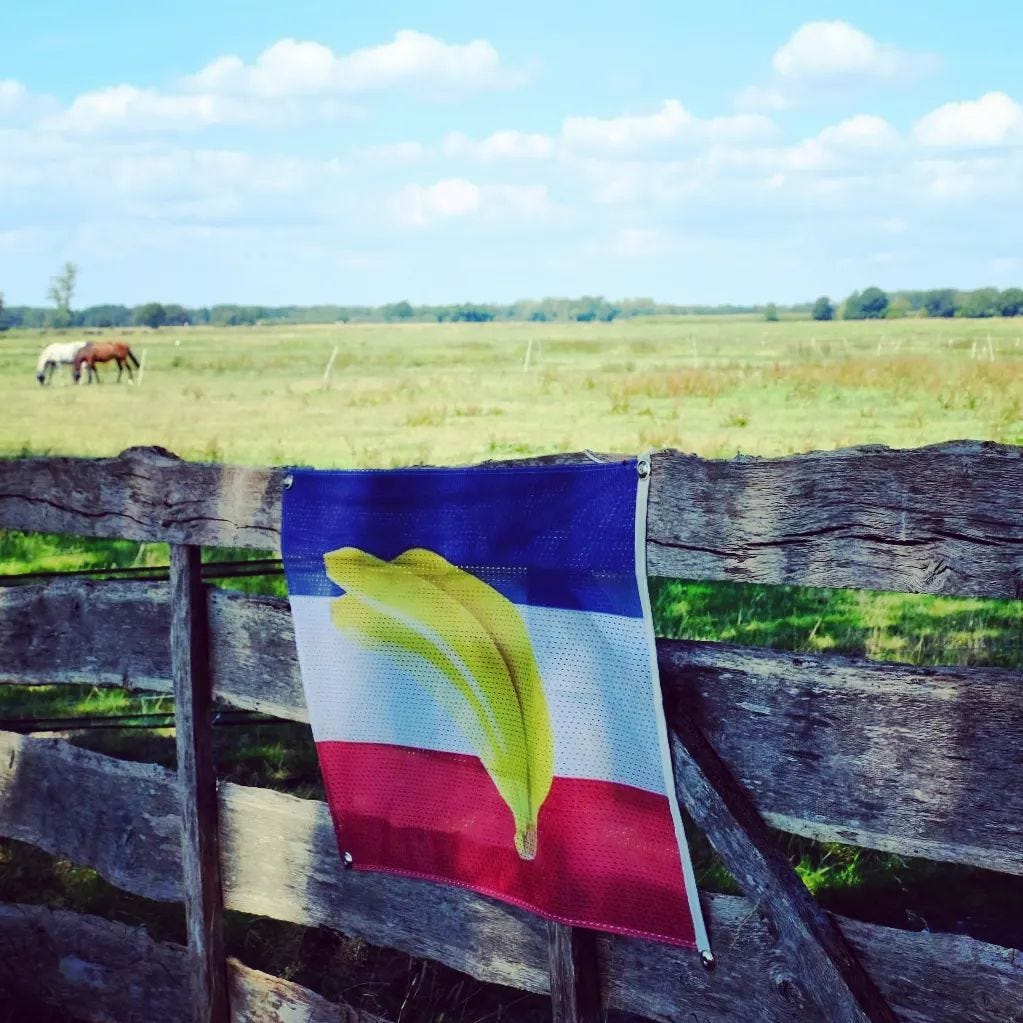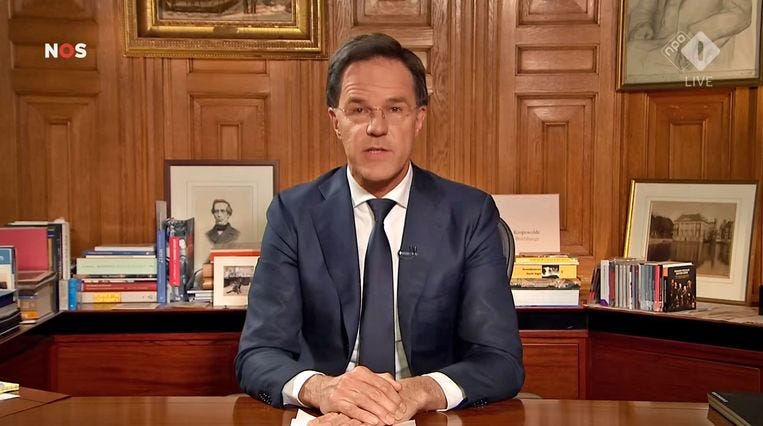Mark Rutte’s long reign
As of this week, the incumbent is now the longest-serving prime minister in modern Dutch history. As the crises multiply, are we in good hands?
In my earlier post on Mark Rutte, I remarked that he was close to being the longest-serving prime minister in modern Dutch history. Well, as of this week, it’s official: with his 4,311 days in office, Mark Rutte surpasses the previous record set by Ruud Lubbers, prime minister from 1982 to 1994. Rutte’s entered office in 2010; he is now leading his fourth coalition government, known here in accordance with naming conventions as Rutte IV. The country’s Tweede Kamer, the Lower House, now numbers a nineteen parties, a cumbersome situation that reflects the increasingly fractured nature of political landscape. Rutte and his ruling coalition have embarked upon contentious, deeply divisive campaign to radically reduce farming in the Netherlands in accordance with EU nitrogen reduction policies. There is a growing sense of Rutte fatigue, a lingering sensation that he’s passed his sell-buy date. But in spite of all this, Rutte’s position appears to remain secure for the time being.
The conservative columnist Syp Wynia has a lengthy piece1 up on his site analyzing Rutte the political creature and he makes some useful observations:
Seeks consensus A skilled negotiator, Rutte projects a cheerful willingness to compromise, as is needed in a consensus-driven society, but does so in a way in which he nearly always wins in the end.
Wille zur Macht Rutte possesses a deep-seated will to power that he exceptionally good at camouflaging behind a pleasant, unassuming personality. He fought hard, as many skilled politicians do, to come to power, and clings forcefully to it. Wynia does not think that Rutte has higher ambitions, such an EU or NATO position in Brussels, preferring to be a big fish in a little pond.
Verbal skills Wynia calls him a “master of words” who skillfully bamboozles the opposition with word clouds, packaging his lies and half truths in such as way as to deflect rebuttal and criticism.
What Wynia doesn’t go into is the question of ideology, or rather non-ideology. Rutte presents himself as a post-ideological politician who eschews “big ideas”. “Vision”, he has said, “is an elephant in the room that blocks the view”. 2 “If you want vision, go to the eye doctor,”3 he said another time. It is a conceit all too common to our time; politicians who claim to have abandoned the millstone of ideology and who embrace “free markets” and “individual liberty” as though these aren’t ideologically-laden positions.
Rutte is the leader of the VVD party, ideologically a typical center-right European liberal party: economically conservative, socially liberal. At least nominally, Rutte appears to embrace classical “liberalism”, but it must be said that aspects of his government’s pandemic response and the more recent draconian agriculture policies are strikingly illiberal. For someone purportedly non-ideological, his statement back in June that “Ukraine is our war” puts him in the ideological camp of a movement whose adherents sport Swastika tattoos. Similarly, Rutte came out with strong words against Victor Orbán’s Hungary, stating that because of a spat over LGBTQ rights the country "has no business being in the European Union any more." Rutte is fiercely pro-EU, which one might also wonder how can be reconciled can be with classic liberal ideas of self-determination and sovereignty.
If we were living in a time when society is relatively stable, the economy humming along, having purportedly non-ideological leadership disavowing any kind of grand vision might be acceptable, perhaps even a blessing, depending on your perspective. Anno 2022, however, this is not that time. We have a military conflict in Europe, we have looming fuel and possibly food shortages, we have a financial system gasping for breath, we have a systemic governance crisis at the EU level. In addition, here in the Netherlands, we face a nation-wide affordable housing crisis and now the farming crisis. All of these challenges will require difficult decisions; some are quandaries with no good options. If one is “non-ideological” how does one make these decisions? What values and what moral framework applies? Does one drive push through “solutions” based solely on utility or expediency? With Mark Rutte, one does not know. We are heading towards a profoundly uncertain future.
Farmer protest update
A meeting last week between representatives of farmers and the government ended in failure. Rutte has told the Tweede Kamer that his coalition was certainly open to negotiation, even to mediation, but that the nitrogen and farming reduction policies would remain in place. On Friday, the protesting farmers say they will increase the pressure, with more protest actions forthcoming.





He is one of PMC WEF club, that is all that matters to the plutocrats controlling and causing crisis and after crisis to harm working people, as they have done for centuries, but now with higher intensity to loot and rape countries more and more, and as I said in/since 2016 imperialism is coming home to roost, to the golden billion so time people get going beyond simple protests and re learn organizing to get this corrupted Govts to kneel..... enough is enough--- at least I am one hopeful Europe gets there way sooner than where I am.